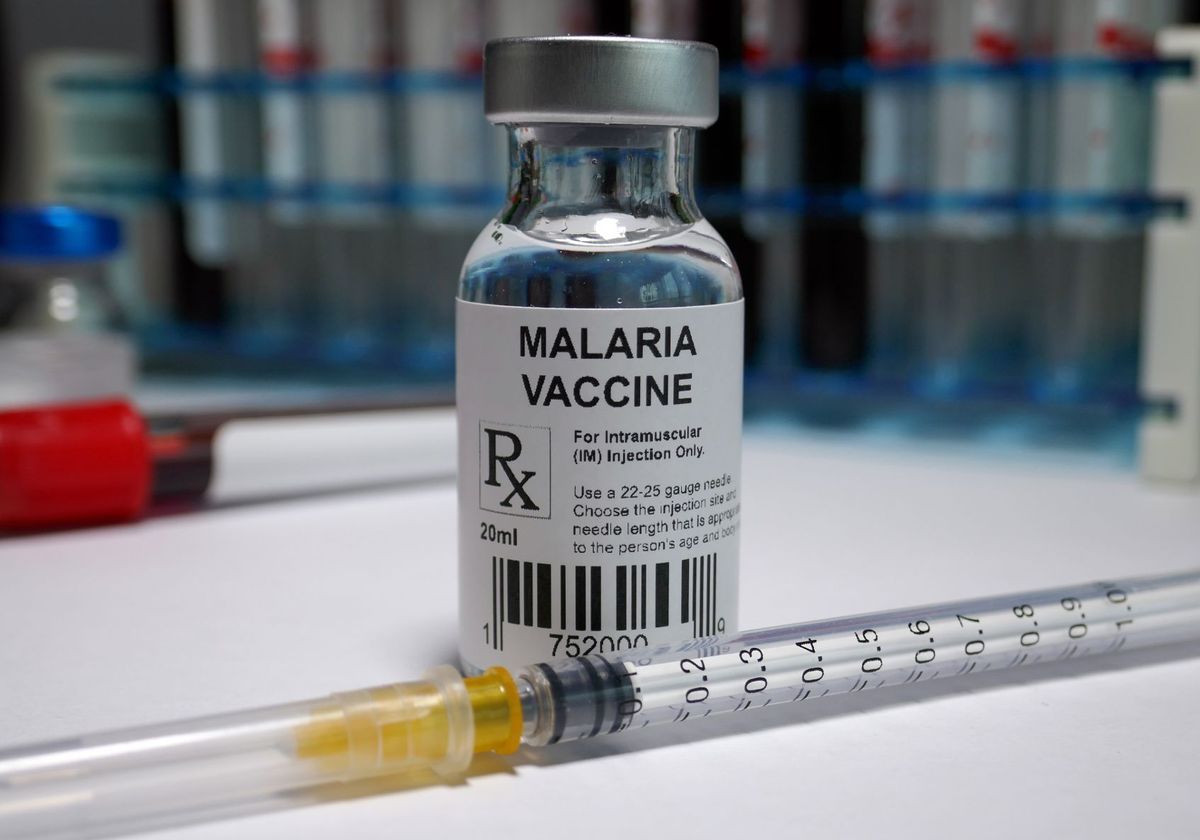Dear anti-vaxxers, there is a new product in the market.
On April 17, 2023, the Nigerian government approved a new malaria vaccine from Oxford University, becoming the second country after Ghana in the world to grant such approval. This new vaccine, called R21, is potentially an improved version of another vaccine, called RTS,S, which the World Health Organization approved in October 2021 for broad use in regions with significant malaria transmission. RTS,S was the first-ever vaccine for a human parasitic infection.
The Director General of Nigeria’s National Agency for Food and Drug Administration and Control (NAFDAC), Mojisola Adeyeye, announced that like Ghana, the vaccine is indicated for the prevention of malaria in children from 5 months to 36 months of age. She added that Nigeria expects to get at least 100,000 doses of the vaccine in donations soon before the market authorisation will start making other arrangements with the National Primary Health Care Development Agency.
Since this announcement, the Nigerian public has gone into frenzy. What does this mean? Is this the end of malaria as we know it? Will malaria be eradicated? How can we afford the vaccine?
However, my favourite questions are always by pessimistic, conspiracy spreading, antivaxxers. Questions like: Is it safe? Is this not a grand ploy by the west to implant 5G internet into our sacred bodies again? Why now? How can a vaccine be developed so fast? How many years of testing has it undergone? Will it not make Nigerians infertile?
So, for the benefit of the doubting Thomas’s out there, I will discuss the vaccine and what it means for global health.
What is the malaria vaccine?
The World Health Organization (WHO) is recommending widespread use of the RTS,S/AS01 (RTS,S) malaria vaccine among children in sub-Saharan Africa and in other regions with moderate to high P. falciparum malaria transmission. The recommendation is based on results from an ongoing pilot programme in Ghana, Kenya and Malawi that has reached more than 900 000 children since 2019.
Based on these findings, WHO recommends that in the context of comprehensive malaria control the RTS,S/AS01 malaria vaccine be used for the prevention of P. falciparum malaria in children living in regions with moderate to high transmission as defined by WHO. RTS,S/AS01 malaria vaccine should be provided in a schedule of 4 doses in children from 5 months of age for the reduction of malaria disease and burden.
The R21/Matrix-M vaccine is the second ever to be approved by the WHO and the first to exceed the WHO threshold of 75 per cent efficacy over 12 months of follow-up. The vaccine showed a 77 per cent protective efficacy over 12 months in a phase 2b trial involving young West African children, following an initial three-dose course of injections.
The first-ever malaria vaccine, RTS,S or Mosquirix, from British drugmaker GSK, was approved by the WHO in 2021 after decades of work. However, a lack of funding hindered the company’s capacity to produce as many doses as were needed.
Why now? Why wasn’t the vaccine developed earlier?
Malaria vaccines have been in development since the 1960’s, with substantial progress in the last decade. The development of a malaria vaccine has faced several obstacles: the lack of a traditional market, few developers, and the technical complexity of developing any vaccine against a parasite. Also, the obvious, ugly, reason- the burden of malaria is mostly in low- and middle-income countries. And frankly, the pharmaceutical giants do not have surplus resources to waste on African and Asian countries.
Apart from that, malaria parasites have a complex life cycle, and there is poor understanding of the complex immune response to malaria infection. The parasites are also genetically complex, producing thousands of potential antigens. Unlike the diseases for which we currently have effective vaccines like measles, yellow fever and polio, exposure to malaria parasites does not confer lifelong protection. Acquired immunity only partially protects against future disease, and in many cases, people still become infected with the parasite; malaria infection can persist for months without symptoms of disease.
And so, similar to the answer of the COVID-19 vaccine, the answer is that research for a malaria vaccine did not start recently. Most of the vaccines we have currently, have undergone decades of trials and mishaps, that we are not knowledgeable about.
Is it safe? What are the side effects?
The RTS,S is the first, and to date, the only vaccine that has demonstrated it can significantly reduce malaria, and life-threatening severe malaria, in young African children. In 2019, three countries – Ghana, Kenya and Malawi – led the introduction of the vaccine in selected areas of moderate-to-high malaria transmission as part of a large-scale pilot programme coordinated by WHO. The aim was to vaccinate about 360,000 children per year in the selected areas across the 3 countries. Vaccinations were being provided through each country’s routine immunization programme.
Known side effects documented included pain and swelling at the injection site, and fever. These side effects are similar to reactions observed with other vaccines given to children. The WHO documented that the vaccine is associated with an increased risk of febrile seizures within 7 days of the administration. In Phase 3 of the trial, children who had febrile seizures after vaccination recovered completely and there were no long-lasting consequences.
Overall, there were 29% fewer cases of severe malaria in children who received the vaccine. In those children who did develop severe malaria, there were more cases of cerebral malaria; however, no causal link to the vaccine has been established.
Can Nigeria afford the vaccine?
The next steps for the WHO-recommended malaria vaccine will include funding decisions from the global health community for broader rollout, and country decision-making on whether to adopt the vaccine as part of national malaria control strategies.
Previously, financing for the pilot programme has been mobilized through an unprecedented collaboration among three key global health funding bodies: Gavi, the Vaccine Alliance; the Global Fund to Fight AIDS, Tuberculosis and Malaria; and Unitaid.
The overall worldwide demand for this vaccine could be up to or over 100 million doses per year. As we now know from the experience with the coronavirus, having more than one source of vaccine is crucial to withstand potential disruptions in supply chains, problems with quality control, or other issues.
The question of whether we can afford the vaccine or not, relies solely on political will and advocacy. That, and the uptake of the vaccine by the Nigerian public. I believe Nigeria can afford to import the vaccine and incorporate it into the National Program for Immunization (NPI) for children under the age of five years. We, however, must do our part by ensuring our children get vaccinated.
After the WHO recommended the broad use of RTS,S in October of 2021, there was a sort of paradigm shift. There’s now significant new effort in developing malaria vaccines. BioNTech, one of the developers of the mRNA-based coronavirus vaccine, wants to develop an mRNA-based vaccine for malaria, and there will be clinical trials for that soon. There’s also a very large program, funded by the Gates Foundation, to use monoclonal antibodies as a preventative tool against malaria. I think all the excitement and development in this arena is great, given the reality that there are 280 million cases of malaria every year and nearly half a million deaths of children in Africa.
May God, through science, continue to help us.




